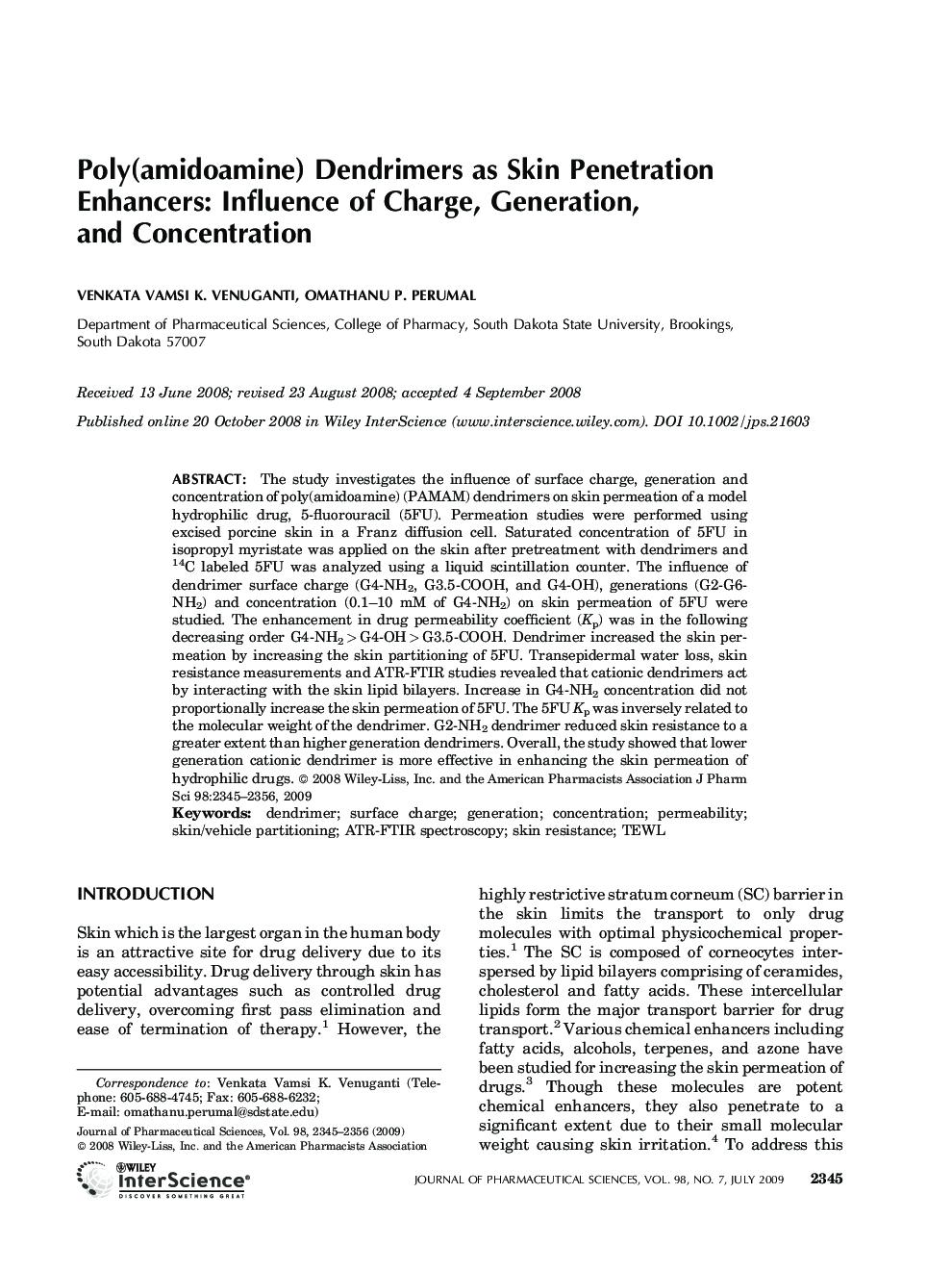| Article ID | Journal | Published Year | Pages | File Type |
|---|---|---|---|---|
| 2486542 | Journal of Pharmaceutical Sciences | 2009 | 12 Pages |
Abstract
The study investigates the influence of surface charge, generation and concentration of poly(amidoamine) (PAMAM) dendrimers on skin permeation of a model hydrophilic drug, 5-fluorouracil (5FU). Permeation studies were performed using excised porcine skin in a Franz diffusion cell. Saturated concentration of 5FU in isopropyl myristate was applied on the skin after pretreatment with dendrimers and 14C labeled 5FU was analyzed using a liquid scintillation counter. The influence of dendrimer surface charge (G4-NH2, G3.5-COOH, and G4-OH), generations (G2-G6-NH2) and concentration (0.1-10Â mM of G4-NH2) on skin permeation of 5FU were studied. The enhancement in drug permeability coefficient (Kp) was in the following decreasing order G4-NH2Â >Â G4-OHÂ >Â G3.5-COOH. Dendrimer increased the skin permeation by increasing the skin partitioning of 5FU. Transepidermal water loss, skin resistance measurements and ATR-FTIR studies revealed that cationic dendrimers act by interacting with the skin lipid bilayers. Increase in G4-NH2 concentration did not proportionally increase the skin permeation of 5FU. The 5FU Kp was inversely related to the molecular weight of the dendrimer. G2-NH2 dendrimer reduced skin resistance to a greater extent than higher generation dendrimers. Overall, the study showed that lower generation cationic dendrimer is more effective in enhancing the skin permeation of hydrophilic drugs. © 2008 Wiley-Liss, Inc. and the American Pharmacists Association.
Keywords
Related Topics
Health Sciences
Pharmacology, Toxicology and Pharmaceutical Science
Drug Discovery
Authors
Venkata Vamsi K. Venuganti, Omathanu P. Perumal,
